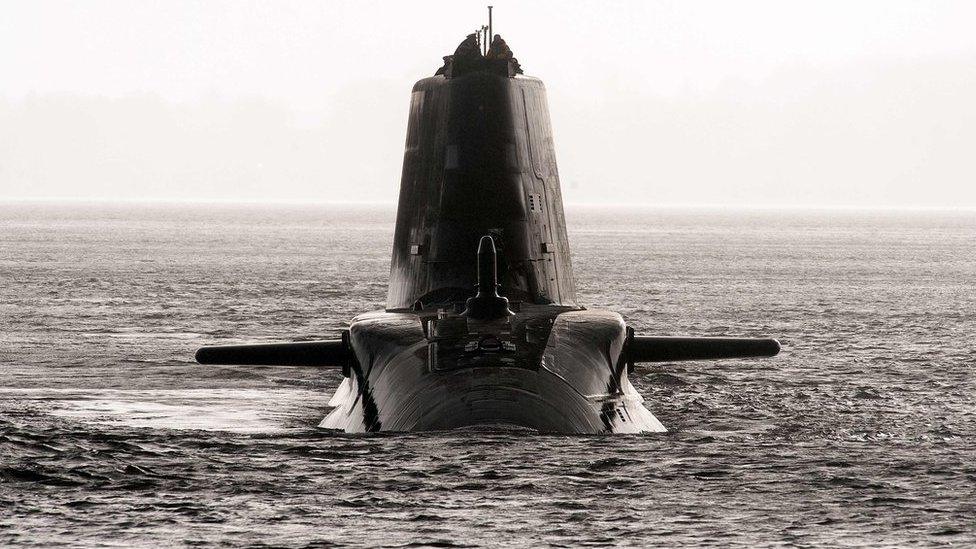Council plans for a nuclear submarine emergency
- Published

The Royal Navy has a berth in a Wester Ross loch for use by its submarines
Highland Council has set out its planned response to the "unlikely event" of an emergency involving a nuclear submarine's reactor.
The local authority's area has an operational berth for Royal Navy submarines in Loch Ewe in Wester Ross.
It is required to plan for how it would help with the response to a reactor failure that resulted in radioactive contamination.
Actions include exclusion zones and potential evacuations of properties.
The area around Loch Ewe, which was a gathering point for supply ship convoys to Russia in World War Two, is sparsely populated.
'Atomic explosion'
Established in the 1960s, the loch's berth is visited "infrequently", according to Highland Council's newly updated public document, Loch Ewe Nuclear Powered Warship Emergency Response Plan.
In the document, the local authority said: "The design, manufacture and operation of reactor plants are extremely carefully supervised and controlled to reduce the risk of any form of emergency to the absolute minimum.
"However, should such an emergency occur, the effect would, at worst, be a release over a 24-hour period of a radioactive cloud of gaseous and volatile fission products, the most significant of which is radioactive iodine.
"It is emphasised that it is impossible for a reactor emergency to result in an atomic bomb type explosion."
Measures taken in the event of an emergency would include an immediate 400m circular "automatic countermeasures zone" around the warship, and a minimum mile-wide radius "detailed emergency planning zone (DEPZ)".
'Detailed planning'
People living in the DEPZ would be told to take potassium iodate tablets and take shelter in their home until the emergency passed, or be prepared for an evacuation of the area.
Raigmore Hospital in Inverness would be on stand-by to take any casualties.
Highland Council said: "The Radiation (Emergency Preparedness & Public Information) Regulations 2001 creates a duty on local authorities to prepare offsite emergency plans for detailed emergency planning zones around licensed nuclear sites.
"The extent of detailed emergency planning zones is set by the nuclear regulator, the Office of Nuclear Regulation."
It said its plan was subject to "regular review".